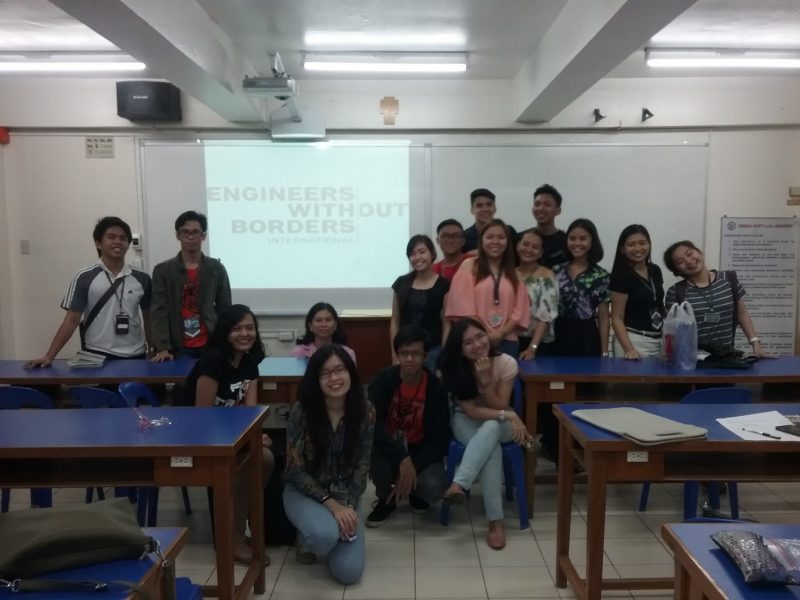By Lilibeth Diane Yu, EWB-PH Secretary
Engineers Without Borders International (EWB-I) has long been known as an organization for those aspiring to contribute to the environment through the efficient implementation of engineering structures and innovations for communities in need. Through the years, EWB-I has branched out in various parts of the globe. On August 30, 2019, the membership application for EWB-Philippines was approved by EWB International, making AdDU its official host institution.
Discussions regarding the installation of EWB-PH started in 2016 when it was first introduced to AdDU School of Engineering and Architecture’s faculty and student leaders. Engr. Agnes Wark, an active member of EWB in Texas, USA, conducted a brief seminar for the students of AdDU-SEA on December 20, 2017 to discuss the importance of the role of engineers in the society.

The current EWB-PH Board of Directors are Dr. Randell U. Espina (President), Engr. Ruben W. Salvador, Jr. (Internal Vice President), Engr. Jason T. Occidental (External Vice President), Ms. Lilibeth Diane Yu (Secretary), Engr. Eduardo E. Descalsota, Jr. (Treasurer), Engr. Ryutaro Yamamoto (Auditor), Engr. Maria Leah Flor A. de Castro (Public Relations Officer), and Engr. Agnes Wark (Adviser).
In collaboration with AdDU-CREATE (Center for Renewable Energy and Appropriate Technologies), AdDU-TechnoHub, and MREC (Mindanao Renewable Energy Center), the organization is open to conducting projects and research activities that could help protect our environment and could provide technologies that are relevant to the daily activities and means of living of Filipinos.
Some of the technologies in focus are RF Energy Harvesting, Missionary Electrification, Grid Integration of Variable Renewables, DSM and Energy Efficiency, Low Carbon Urban and Rural Development, Energy Products and Service Valorization, Waste to Energy Technologies, Systems Modeling, and other appropriate technologies (water, energy, food, transport, telecom). However, its primary focus is on energy sustainability through the use of solar technology, not only within the university, but in different areas of Mindanao as well, especially in places where the supply of electricity is limited.
